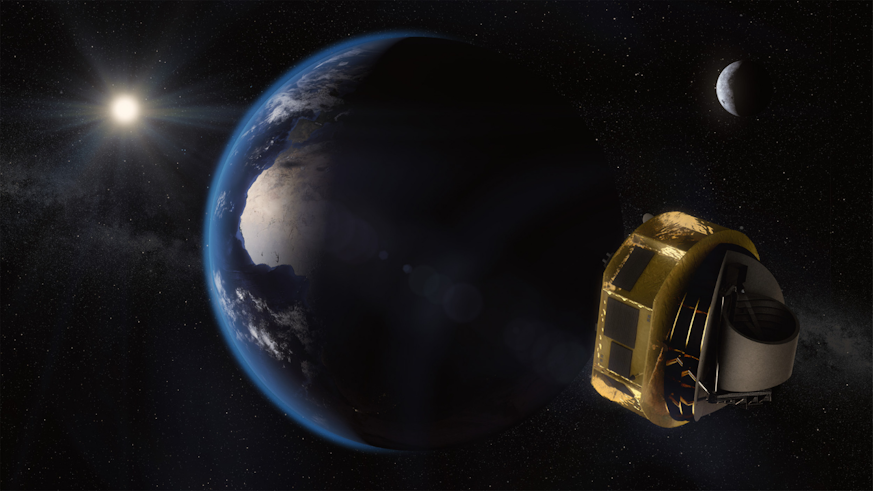Novel space mission gets go-ahead from the European Space Agency
12 November 2020

Astronomers at Cardiff University are part of an international team set to build ‘Ariel’, a new space satellite designed to study extrasolar planets which has now been approved by The European Space Agency.
The European Space Agency (ESA) has formally announced its adoption of ‘Ariel’, an innovative space satellite, giving the go-ahead for its build prior to launch in 2029.
The decision followed a set of rigorous reviews throughout 2020, designed to confirm both the technical feasibility and the scientific value of the project.
Ariel is particularly noteworthy as it will be the first of its kind - a space satellite dedicated to studying the atmospheres of exoplanets.
Exoplanets are planets outside of the Solar System, orbiting a star other than our sun, and Ariel will survey around 1000 of these, looking at their composition, formation, and evolution.
One of the Research Groups in the Cardiff School of Physics and Astronomy, The Astronomy Instrumentation Group, is part of the international team that will build and operate Ariel. Their work will focus on several critical elements. Firstly, developing the internal calibration source, important for ensuring that Ariel’s detector signals are fully understood. Secondly, they are responsible for the important end-to-end mission simulator – a detailed computer model of Ariel used to predict its performance and plan its observations. And finally, they will contribute to the data-processing software to convert the satellite’s detector signals into all-important scientific results.
Ariel will collect visible and infrared light from distant star systems and observe planets as they pass in front of their parent stars, with the star acting as a backlight to illuminate the planet’s atmosphere. A diverse range of exoplanets will be revealed, from extremely hot to temperate, and from gaseous to rocky. Such a picture will go a long way to unlocking the mystery of the origins of planets, helping us uncover just how this diversity came to be.
Professor Matt Griffin, Head of the Cardiff Astronomy Instrumentation Group, told us:
“The final adoption of the mission is great news for the whole Ariel team. It’s taken a lot of work to get to this stage and we’re now looking forward to building Ariel and seeing the results. To be able to characterise the atmospheres of distant extrasolar planets in this way will be a huge scientific advance.”
Dr Subi Sarkar, the Cardiff astronomer leading the Ariel mission simulator development, said:
“Ariel is a project full of scientific promise. It will take nearly ten years to build and prepare it for launch, but by the time it flies, based on the modelling work we are doing, we will be able to understand the system extremely well and to use it confidently to measure the faint signatures of molecules in exoplanet atmospheres with great precision.”
The Ariel consortium team are currently preparing to begin prototyping and building their designs for the telescope and instruments and making detailed plans for receiving and processing the satellite’s data.
The UK is leading the Ariel mission, with its contributions funded by the UK Space Agency, and Professor Giovanna Tinetti of University College London as the Consortium Principal Investigator. Participating alongside Cardiff are the other UK institutes: Science and Technology Facilities Council’s (STFC) RAL Space, Technology Department and UK Astronomy Technology Centre, and the University of Oxford.
Share this story
View full details for all our courses, including entry requirements, modules and career prospects.
